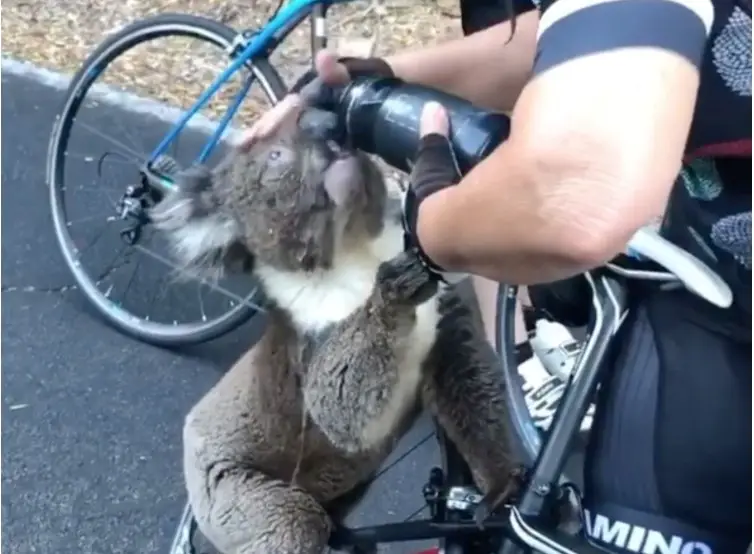Did you know dogs can detect untrustworthy individuals? It’s true. Just a look and a few sniffs are all they need to determine someone’s character. Scientific research now supports this belief that dogs can indeed ‘sniff out’ individuals with ill intentions. On International Dog Day, let’s delve into how they utilize this remarkable skill.
The age-old debate of choosing between a cat or a dog as a pet often boils down to their differing personalities. Dogs, requiring more attention and care, are known to understand human emotions better, whereas cats are typically more independent and carefree. However, according to numerous scientific studies, dogs possess an advanced sixth sense and are highly sensitive to human emotions. They can even discern if a person is trustworthy.
A study by Akiko Takaoka from Kyoto University in Japan revealed that dogs tend not to trust a person who has lied to them, showcasing their ability to judge reliability.
How Can Dogs Smell Bad People?
Dogs have an extraordinary ability to perceive the world around them, largely due to their keen sense of smell. They can detect subtle changes in human body odor, which can indicate a person’s emotional state such as fear or anxiety. These scents are produced by various chemicals and hormones that our bodies naturally release.
When we say dogs can “smell bad people,” it doesn’t mean they can literally detect malicious intent or bad character. Instead, it’s more about how they interpret the signals we unconsciously give off. For instance, if a person is nervous or anxious, they might sweat more and their heart rate may increase, both of which a dog can pick up on.
Moreover, dogs are excellent at reading human body language and emotions. The study by Akiko Takaoka has shown that dogs could determine if a person was unreliable based on their actions.
Although dogs cannot directly smell the moral quality of a person, they are incredibly attuned to the physical and emotional signals that people emit. This sensitivity, coupled with their loyalty and protective nature, often makes it seem as though dogs can sense “bad” people.
Science Behind Dogs Sensing Bad People
Dogs possess an advanced sixth sense and are incredibly attuned to the subtleties of human behavior. When someone harbors ill intentions or is about to act negatively, their heart rate escalates and chemicals like adrenaline are released, leading to increased perspiration.
Dogs, with their superior sense of smell and heightened alertness, can detect these scent changes and behavioral shifts almost instantly. Their sharp instincts and present-focused nature allow them to perceive potential threats and negative energy, either responding fearfully or exhibiting heightened aggression.
Dogs also play a role in moderating interactions between their owners and others. Research has demonstrated that dogs are sensitive to social cues and display unwavering loyalty towards their owners, influencing how others communicate with them. In one experiment, dog owners sought assistance from various individuals who later offered treats to the dogs. The dogs only accepted treats from those who had helped their owners, rejecting those who had refused to assist.
Similarly, dogs are perceptive to the dynamics between their owners and strangers. A study by Neuroscience and Biobehavioral Reviews revealed that dogs could interpret social cues and tended to avoid individuals who had behaved poorly towards their owners.
Moreover, it’s been scientifically proven that dogs can comprehend our gestures and facial expressions. Brain Hare, Chief Scientific Officer at Dognition, explains, “Dogs are not mindlessly listening to us when we gesture. They assess the information we give them based in part on how it could help them achieve their goals. Many family dogs could avoid your gesture if you point incorrectly and use their memory to find a hidden treat.” This illustrates the complex cognitive abilities of dogs.
“Dogs’ Intelligence Surpasses Common Assumptions”
“Dogs are remarkably attuned to human activity. They harbor fewer preconceived notions, living entirely in the present without reflecting on the past or making future plans,” elucidates John Bradshaw, an Honorary Research Fellow at the University of Bristol’s vet school.
Dogs demonstrate an extraordinary capacity to decode our gestures and emotions, understand social cues, and even assess a person’s trustworthiness based on their prior experiences and judgment. Their advanced sixth sense and heightened awareness stem from their ability to live completely in the moment, undistracted by thoughts of the past or future.
If your dog seems apprehensive about a certain individual, it’s important to take note of their behavior. If your usually jovial, trusting dog displays a change in behavior around someone new, they may be detecting something concerning about that person.
For example, if your dog exhibits fear, runs away, lowers its ears or tail, shows aggressive behavior, barks, growls, snaps at someone, or attempts to shield you, it could indicate that they’re sensing potential threats or negative energy. Consequently, it’s imperative to pay attention to these warning signs and proceed with caution when dealing with such people, given dogs’ unique ability to ‘sniff out’ individuals with ill intentions.








